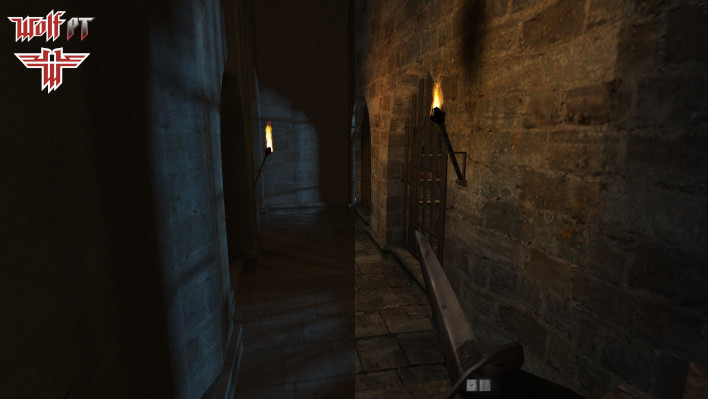It's been a few years since
NVIDIA announced its first foray into making a real-time ray tracing GPU. Since that initial announcement, games engines, software developers, and even physics researchers have presented us with some amazing representations of simulated light in a relatively realistic output.
Of course, not to be left behind, AMD has its own ray tracing, which it calls path tracing. Functionally the idea is the same. A light source will trace a path in all directions and will cast a shadow where appropriate. We've seen RTX features show up in games like
Minecraft,
Doom,
Quake II, and
Half-Life. Thanks to an AMD researcher Dihara Wijetunga, we are looking at returning to yet another classic dipping its toes into the sweet lighted goodness of path tracing.
The game to which we are referring is almost old enough to drink in the United States having been released in 2001—
Return to Castle Wolfenstein. The game has an overall positive score at 88 on
Metacritic today. It also was the base of the mega popular free to play spinoff known as
Return to Castle Wolfenstein: Enemy Territory.
Although Wijetunga looks to be utilizing a DX12 modified version of the open source code known as
iortcw he is calling Wolf PT, the original Return to
Castle Wolfenstein was built on a modified id Tech 3 engine. That same engine was also the engine used for
Quake 3, so maybe we'll see a path traced
Quake 3 in the future too. Though it would be speculation at this time it does make sense that, at some point, there may be Vulkan support. Additionally, this seems to be a labor of love project by one person, whether it sees the light of day is hard to say for certain. Still, it's cool to look at how much lighting like this can change the feel of a game.
 Screenshot Showing Comparison between Path Traced and Original Lighting
Screenshot Showing Comparison between Path Traced and Original Lighting
We also have to wonder, though, at Microsoft's involvement in things like
Minecraft RTX with NVIDIA, and its recent plans to acquire Activision-Blizzard, who own the rights to
Wolfenstein. Is it possible that at some point we see Microsoft stepping in to improve and re-release these classics with upgrades like this in the future? We sure hope so.

